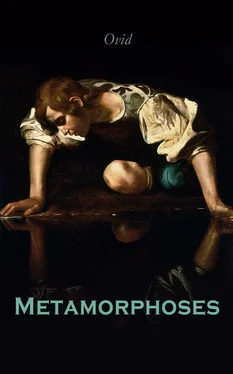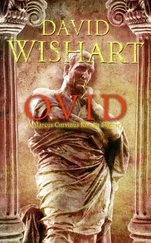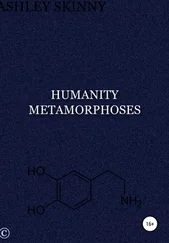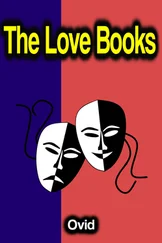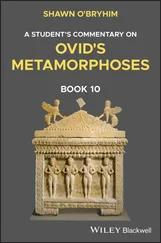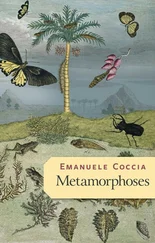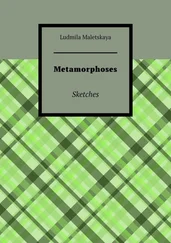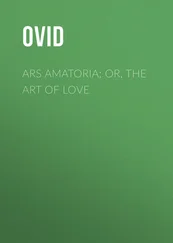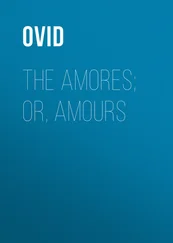60 The hollow-wreathed trumpet. ]—Ver. 335. The ‘Buccina,’ or, as we call it, ‘the conch shell,’ was a kind of horn, or trumpet, made out of a shell, called ‘buccinum.’ It was sometimes artificially curved, and sometimes straight, retaining the original form of the shell. The twisted form of the shell was one of the characteristic features of the trumpet, which, in later times, was made of horn, wood, or metal, so as to imitate the shell. It was chiefly used among the Romans, to proclaim the watches of the day and of the night, which watches were thence called ‘buccina prima,’ ‘secunda,’ etc. It was also blown at funerals, and at festive entertainments, both before sitting down to table and after. Macrobius tells us, that Tritons holding ‘buccinæ’ were fixed on the roof of the temple of Saturn.
61 The bidden retreat. ]—Ver. 340. ‘Canere receptus’ was ‘to sound the retreat,’ as the signal for the soldiers to cease fighting, and to resume their march.
62 Now the sea. ]—Ver. 343. This and the two following lines are considered as entitled to much praise for their terseness and brevity, as depicting by their short detached sentences the instantaneous effect produced by the commands of Neptune in reducing his dominions to a state of order.
63 A common origin. ]—Ver. 352. Because Prometheus was the father of Deucalion and Epimetheus of Pyrrha; Prometheus and Epimetheus being the sons of Iapetus. It is in an extended sense that he styles her ‘sister,’ she being really his cousin.
64 The arts of my father. ]—Ver. 363. He alludes to the story of his father, Prometheus, having formed men of clay, and animated them with fire stolen from heaven.
65 The waters of Cephisus. ]—Ver. 369. The river Cephisus rises on Mount Parnassus, and flows near Delphi.
66 Poured on their clothes. ]—Ver. 371. It was the custom of the ancients, before entering a temple, either to sprinkle themselves with water, or to wash the body all over.
67 Cover your heads. ]—Ver. 382. It was a custom among the ancients to cover their heads in sacrifice and other acts of worship, either as a mark of humility, or, according to Plutarch, that nothing of ill omen might meet their sight, and thereby interrupt the performance of the rites.
68 Descended from Titan. ]—Ver. 395. Pyrrha was of the race of the Titans; for Iapetus, her grandfather, was the son of Titan and Terra.
69 Under the same name. ]—Ver. 410. With his usual propensity for punning, he alludes to the use of the word ‘vena,’ as signifying either ‘a vein’ of the body, or a ‘streak’ or ‘vein’ in stone, according to the context.
70 The seven-streamed Nile. ]—Ver. 423. The river Nile discharges itself into the sea by seven mouths. It is remarkable for its inundations, which happen regularly every year, and overflow the whole country of Egypt. To this is chiefly owing the extraordinary fertility of the soil of that country; for when the waters subside, they leave behind them great quantities of mud, which, settling upon the land, enrich it, and continually reinvigorate it.
71 Instituted sacred games. ]—Ver. 446. Yet Pausanias, in his Corinthiaca, tells us that they were instituted by Diomedes; others, again, say by Eurylochus the Thessalian; and others, by Amphictyon, or Adrastus. The Pythian games were celebrated near Delphi, on the Crissæan plain, which contained a race-course, a stadium of 1000 feet in length, and a theatre, in which the musical contests took place. They were once held at Athens, by the advice of Demetrius Poliorcetes, because the Ætolians were in possession of the passes round Delphi. They were most probably originally a religious ceremonial, and were perhaps only a musical contest, which consisted in singing a hymn in honor of the Pythian God, accompanied by the music of the cithara. In later times, gymnastic and equestrian games and exercises were introduced there. Previously to the 48th Olympiad, the Pythian games had been celebrated at the end of every eighth year; after that period they were held at the end of every fourth year. When they ceased to be solemnized is unknown; but in the time of the Emperor Julian they still continued to be held.
72 Crown of beechen leaves. ]—Ver. 449. This was the prize which was originally given to the conquerors in the Pythian games. In later times, as Ovid tells us, the prize of the victor was a laurel chaplet, together with the palm branch, symbolical of his victory.
73 The Delian God. ]—Ver. 454. Apollo is so called, from having been born in the Isle of Delos, in the Ægean Sea. The Peneus was a river of Thessaly.
74 A fillet tied together. ]—Ver. 477. The ‘vitta’ was a band encircling the head, and served to confine the tresses of the hair. It was worn by maidens and by married women also; but the ‘vitta’ assumed on the day of marriage was of a different form from that used by virgins. It was not worn by women of light character, or even by the ‘libertinæ,’ or female slaves who had been liberated; so that it was not only deemed an emblem of chastity, but of freedom also. It was of various colors: white and purple are mentioned. In the later ages the ‘vitta’ was sometimes set with pearls.
75 Hymen. ]—Ver. 480. Hymen, or Hymenæus, was one of the Gods of Marriage; hence the name ‘Hymen’ was given to the union of two persons in marriage.
76 The nuptial torch. ]—Ver. 483. Plutarch tells us, that it was the custom in the bridal procession to carry five torches before the bride, on her way to the house of her husband. Among the Romans, the nuptial torch was lighted at the parental hearth of the bride, and was borne before her by a boy, whose parents were alive. The torch was also used at funerals, for the purpose of lighting the pile, and because funerals were often nocturnal ceremonies. Hence the expression of Propertius,— ‘Vivimus inter utramque facem,’ ‘We are living between the two torches.’ Originally, the ‘tædæ’ seem to have been slips or lengths of resinous pine wood: while the ‘fax’ was formed of a bundle of wooden staves, either bound by a rope drawn round them in a spiral form, or surrounded by circular bands at equal distances. They were used by travellers and others, who were forced to be abroad after sunset; whence the reference in line 493 to the hedge ignited through the carelessness of the traveller, who has thrown his torch there on the approach of morning.
77 Here in rude guise. ]—Ver. 514. ‘Non hic armenta gregesve Horridus observo’ is quaintly translated by Clarke, ‘I do not here in a rude pickle watch herds or flocks.’
78 Claros and Tenedos. ]—Ver. 516. Claros was a city of Ionia, famed for a temple and oracle of Apollo, and near which there was a mountain and a grove sacred to him. There was an island in the Myrtoan Sea of that name, to which some suppose that reference is here made. Tenedos was an island of the Ægean Sea, in the neighborhood of Troy. Patara was a city of Lycia, where Apollo gave oracular responses during six months of the year. It was from Patara that St. Paul took ship for Phœnicia, Acts, xxi. 1, 2.
79 The properties of simples. ]—Ver. 522. The first cultivators of the medical art pretended to nothing beyond an acquaintance with the medicinal qualities of herbs and simples; it is not improbable that inasmuch as the vegetable world is nourished and raised to the surface of the earth in a great degree by the heat of the sun, a ground was thereby afforded for allegorically saying that Apollo, or the Sun, was the discoverer of the healing art.
80 Ah! wretched me! ]—Ver. 523. A similar expression occurs in the Heroides, v. 149, ‘Me miseram, quod amor non est medicabilis herbis.’
Читать дальше
